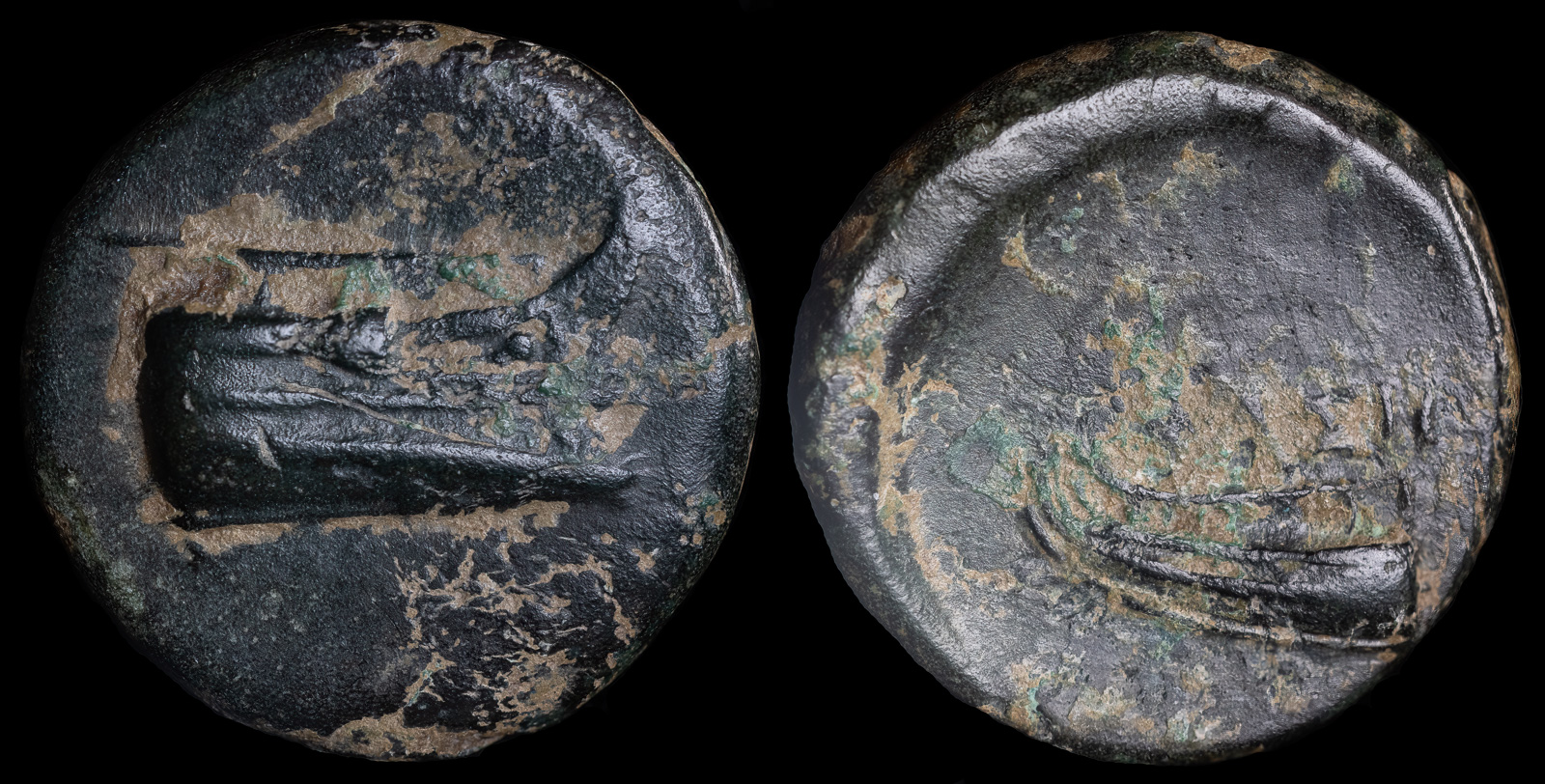
Lycia, Phaselis
c. 250-221/0 BCE
Æ 18mm, 4.67g, 9h
Prow of galley r.
R/ Stern of galley l.
SNG Copenhagen 122
Phaselis was founded in 690 BCE by settlers from Rhodes. It had three harbors, though only one is mentioned in a 4th century BCE text. To the north of the city was a lake and marsh, and the aqueduct to bring water from there to the city still stands.
In 333 BCE Phaselis surrendered peacefully to Alexander the Great, and he stayed there for a bit. It remained under Macedonian control until 309 BCE, when Ptolemy wrested it from Antigonos I Monophthalmos in a siege. It then remained in Egyptian control for the next two hundred years.
Although it would seem the city is in Lycia, it was never part of the Lycian League and in ancient times was considered the western-most city in Pamphylia. The prow on its coins signifies its strength as a trading port between Greece, Phoenicia, and Egypt.
The ruins of the city are still in very good condition and may be visited.
Phaselis founded by settlers from Rhodes.
Athens under Kimon attacks Phaselis and places it in the Delian League.
Phaselis concludes a treaty with Mausolos of Halikarnassos.
April
Alexander III spends some time at Phaselis after its surrender.
Antigonos Monophthalmos besieges and takes Phaselis.
Lycia, including Phaselis, is overrun by Antiochos III.
Lycia, including Phaselis, and Caria, including Stratonikeia, are given its freedom from Rhodes by Rome.
The pirate Zekenites, based in Phaselis, is defeated by Publius Servilius Vatia Isauricus.
Hadrian visits Phaselis and builds a triple-arched gateway.